An excited bark comes from the kennels as the dogs hear the door slam and my boots scrape on the yard. They know their day is about to begin – a day full of stimulation. They bounce around their kennels with excitement as we get them out for their day’s work. Their life would be envied by most pet dogs.
Three border collies work at Croft Foot Farm, our 364-hectare property in Cumbria. My husband, Colin, does the bulk of the farm work, using the collies mainly as sheepdogs. The four of them make a formidable team in looking after our 1,200 breeding sheep.
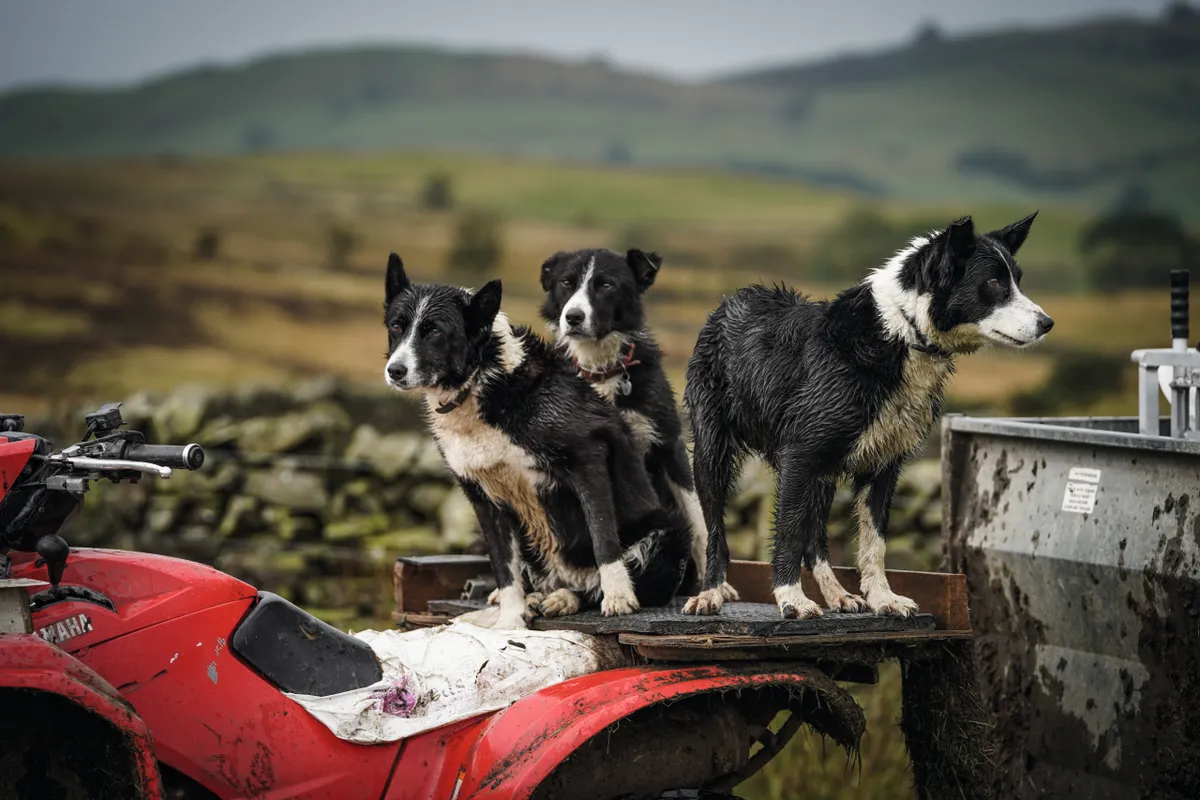
At any one time, we tend to have a lead dog who does the main bulk of work. There will also often be a retired dog who potters around the yard and comes out on busy days. And a third dog to mop up, possibly a young dog in training.
But we also have a fourth dog, Meg. She’s mine, and has become more of a ‘model’ dog. I’m a photographer as well as a farmer, and host Farm Photography Tours at Croft Foot. Meg demonstrates shepherding skills for my clients and poses for portraits. She also adores coming on walks with our children.
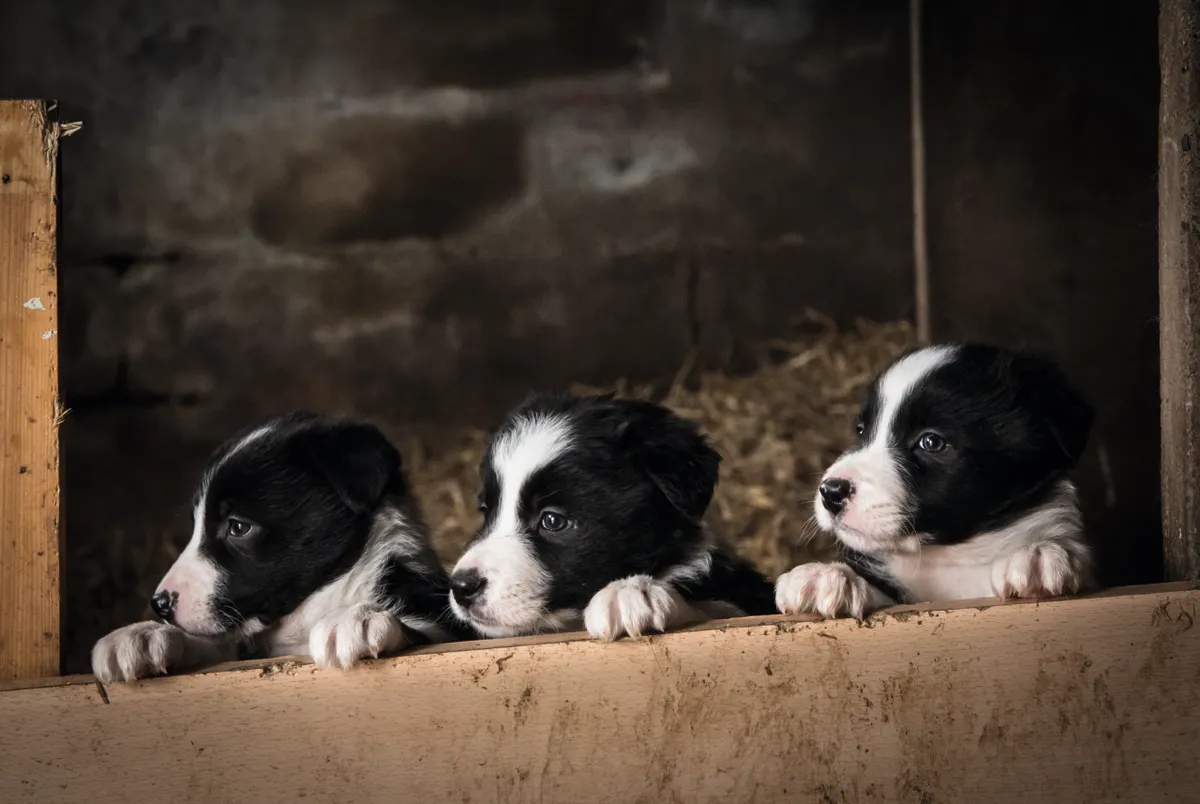
How to train a sheepdog
Working dogs, of course, need to be taught. A fully trained dog will start work at around two years of age. Training sheepdogs is very challenging. You can train a dog to think, or you can train a dog to respond exactly to command.
If you focus solely on the latter, then once the dog is out of sight it can’t think for itself. Fell dogs, which assist in gathering livestock across the hills and commons, need to be able to think for themselves much more than other farm dogs. This is an ability that comes from experience, especially from gathering with other dogs and learning the hefts (the communal grazing areas on the fells).
We don’t think of the dogs as pets, as they are part of the working team. When things go well, we stroke them and give them rewards. When things go less well, that often comes down to miscommunication. The dog misunderstands what the shepherd wants – it gets an idea in its head and runs with it.
When chosen to be pets, border collies need the same level of stimulation that they get on farms. As they require lots of exercise, this breed is most suited to very active owners. They can also be destructive if not mentally stimulated enough.
Ultimately, the sheepdog in its working role is trained not to harm. A well-trained, keen sheepdog can often be seen “giving the sheep the eye”, even when not given a command. It will watch, often intensively, the flock’s every move, desperate to be called into action.
The different personalities of dogs
Despite the training, the dogs’ personalities show through. These can vary hugely, just like humans. Meg is very gentle and eager for affection, so she is desperate to please. Billy, our lead dog, is a dominant character, exerting his authority when on the quad bike. I wouldn’t trust him with children. He hates any other dog coming into his territory and we have to be careful when we meet other dog-walkers, as our dogs do not socialise with other pet dogs. This makes them a bit more reactive to others, often displayed as aggression, particularly in what the sheepdog sees as its own territory.
- Dog walking guide: expert training tips to help your dog behave
- Alabama rot dog disease: how to spot the signs and protect your dog
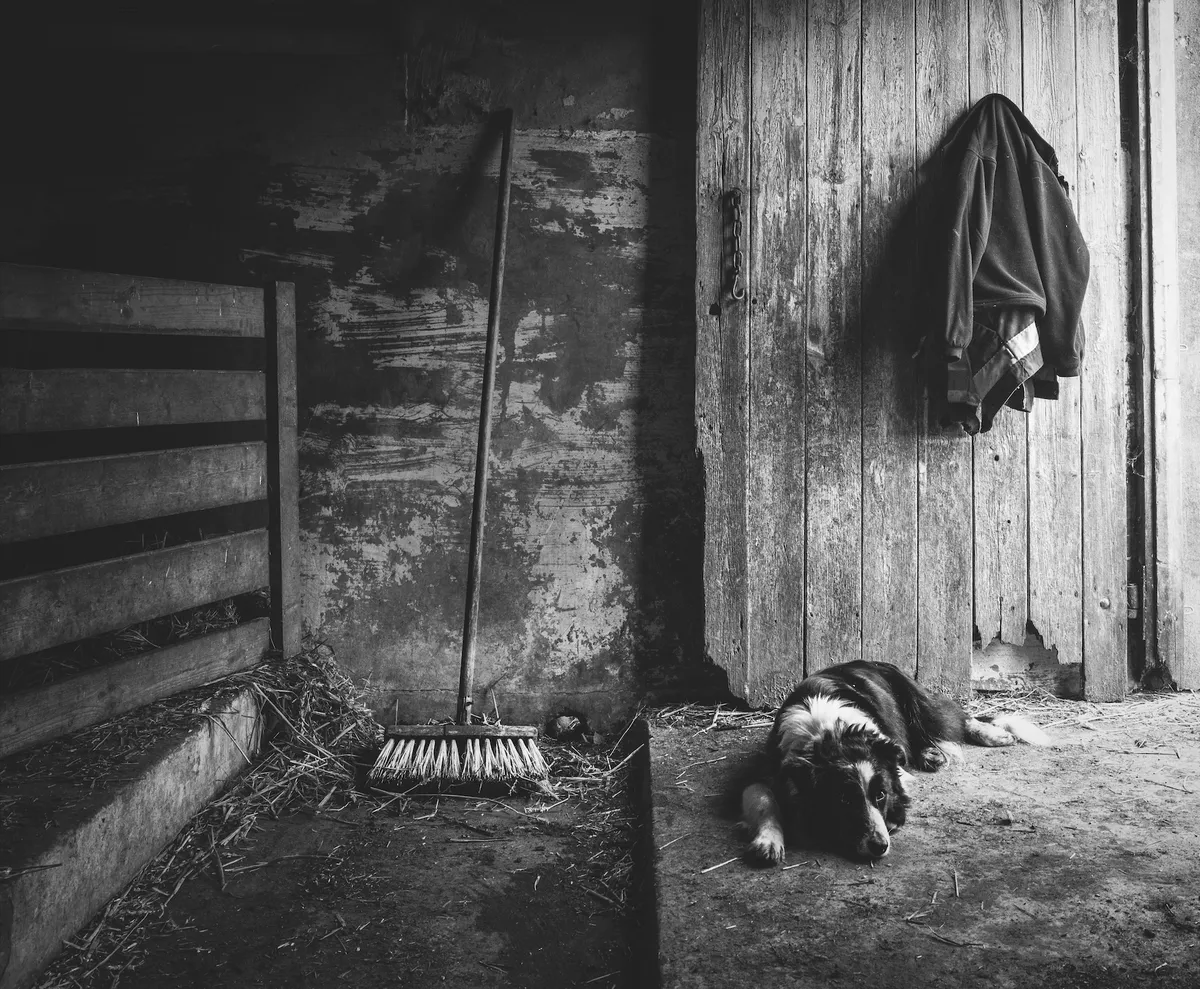
Are border collies as intelligent as we think?
Border collies are known to be among the most intelligent of dogs and adore using their brains. They need to be both intellectually stimulated and physically active.
On our farm, we train and channel their natural hunting and herding instincts in order to move flocks of sheep and herds of cows, to isolate animals that may need attention, and even to help catch those sheep that may need assistance. They can hold sheep in one place and prevent animals going through gates to allow the farmer through. They also make great guard dogs for the yard and farm.
Our small pack of border collies exist a bit like dogs in the wild. They sleep in outside kennels – by living in an unheated environment, they can cope with whatever weather Cumbria throws at them – rain, wind and hail – while working comfortably all day. They also have a pack mentality: there are leaders and followers and they all know their role.
As they jump up into the quad bike at the beginning of the day, you can see the pure unadulterated pleasure on their faces at the anticipation of a day’s work. They know their place, even on the bike.
At Croft Foot, most of our dogs work for seven to 10 years at high intensity. While the males have a bit more stamina and face up to the cows better, we have generally had females, as they tend to be a little less aggressive. At the moment, though, we have a mixed pack – which is incredibly challenging when a female is in heat. We don’t want any more puppies and can’t have a dog out of action because it’s pregnant.
Did you know? Border collies are one of the healthiest dog breeds. They are also one of the best dog breeds for agility and are one of the toughest dog breeds too – all skills needed for work on the farm.
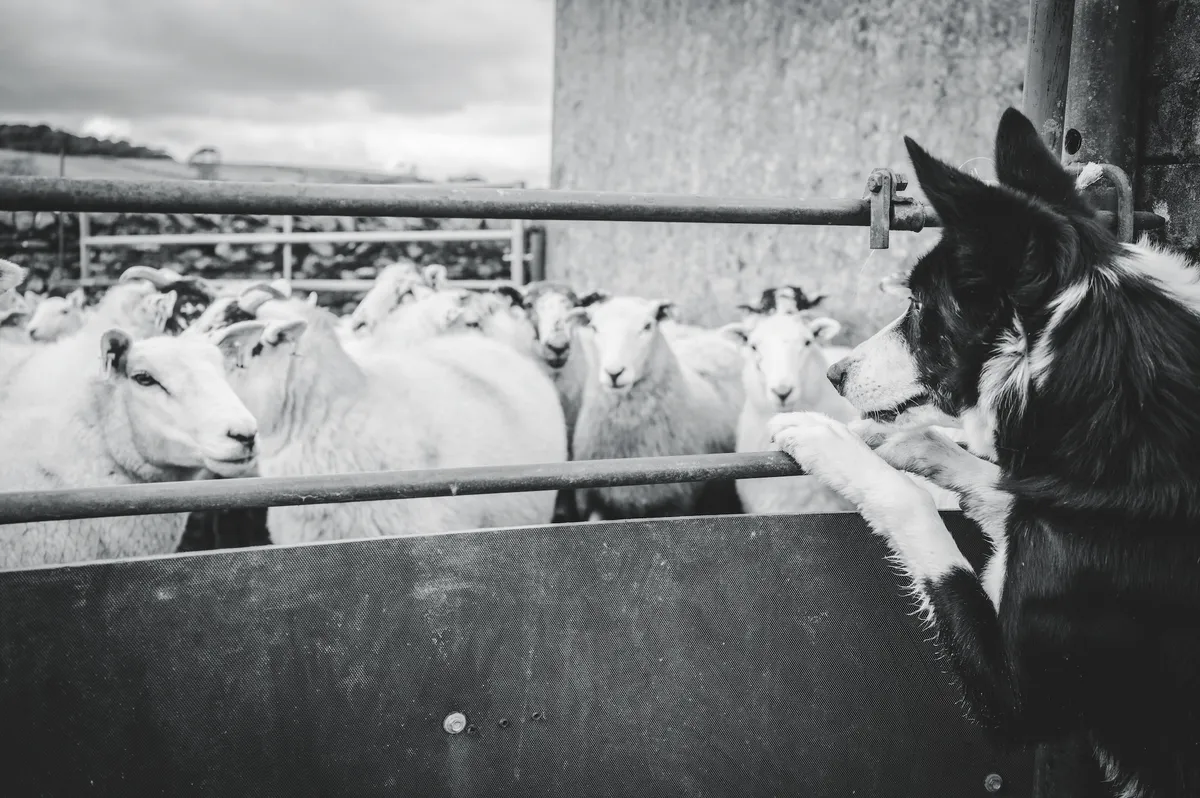
How to breed border collies
But sometimes, the time is right to breed a new generation. Meg has had a couple of litters of pups. She was a very attentive mother, needing no assistance along the way. Her last litter had 10 pups, which she found very tiring, so we decided not to put her through another set.
Breeding collie pups came with a strong sense of responsibility for me, in finding suitable homes for the pups. Many farmers understand the need for good breeding in sheepdogs to maintain a good work ethic. It is also essential to avoid inbreeding, which can produce badly behaved and unhealthy dogs. Most of our pups went to farms to continue the sheepdog role and we were delighted when one even went to be trained as a Mountain Rescue search dog.
One pup had the most beautiful markings, so we kept it for ourselves. Unfortunately, it didn’t respond to training and quickly it became clear that a sheepdog’s life wasn’t going to suit it. We had to make the difficult decision then to give the young dog up. We contacted the local animal shelter, which had some clients on a waiting list, and the dog stayed with us until the new home was ready. It’s never an easy decision when you need to let a dog go. We’ve now heard that the dog is living its best life with a retired couple who like walking the mountains of the Lake District.
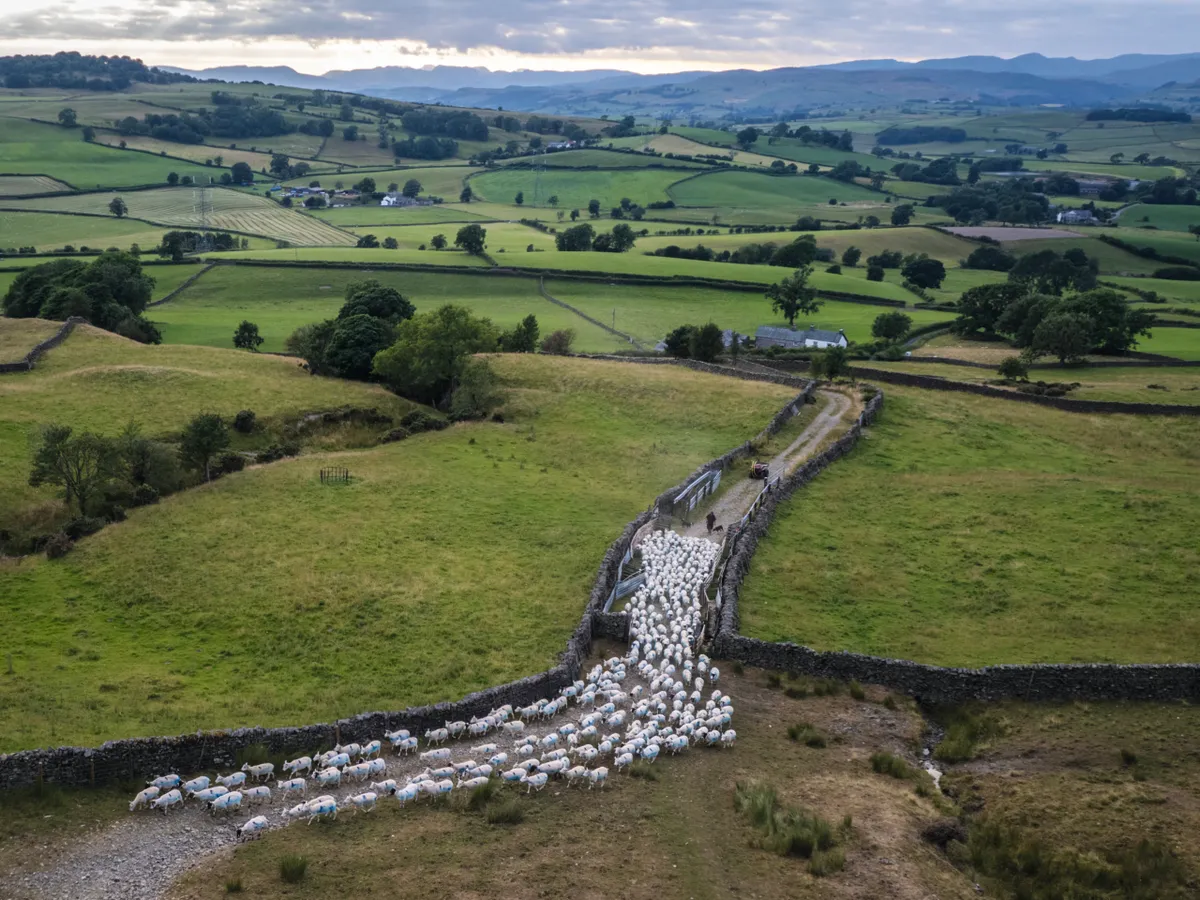
Sheepdogs as pets
My husband Colin has lived with dogs for as long as he can remember and has had collies around him for more than 30 years. “I can’t imagine life without them,” he says. “I have probably had three exceptional dogs in that time – those that really stand out for their intelligence and commitment.”
Farming is frequently a socially isolated occupation. The dogs make fantastic companions, helping to prevent the loneliness creeping in. Unbelievably loyal, they are keen to please by working hard, responding instantly to commands and pulling their weight in the team. A (hu)man’s best friend couldn’t be a more accurate expression when describing a loyal sheepdog, whose companionship can provide sanity to the hard-working shepherd. It’s hard to underestimate the bond – the dog is there to work even if you’re having a bad day, come rain or shine and they are always happy to do so.
Working our upland sheep farm would be nearly impossible without our dogs. They are a permanent fixture here. We love our dogs to have a purpose – a role, a mission – and this brings them a high quality of life.
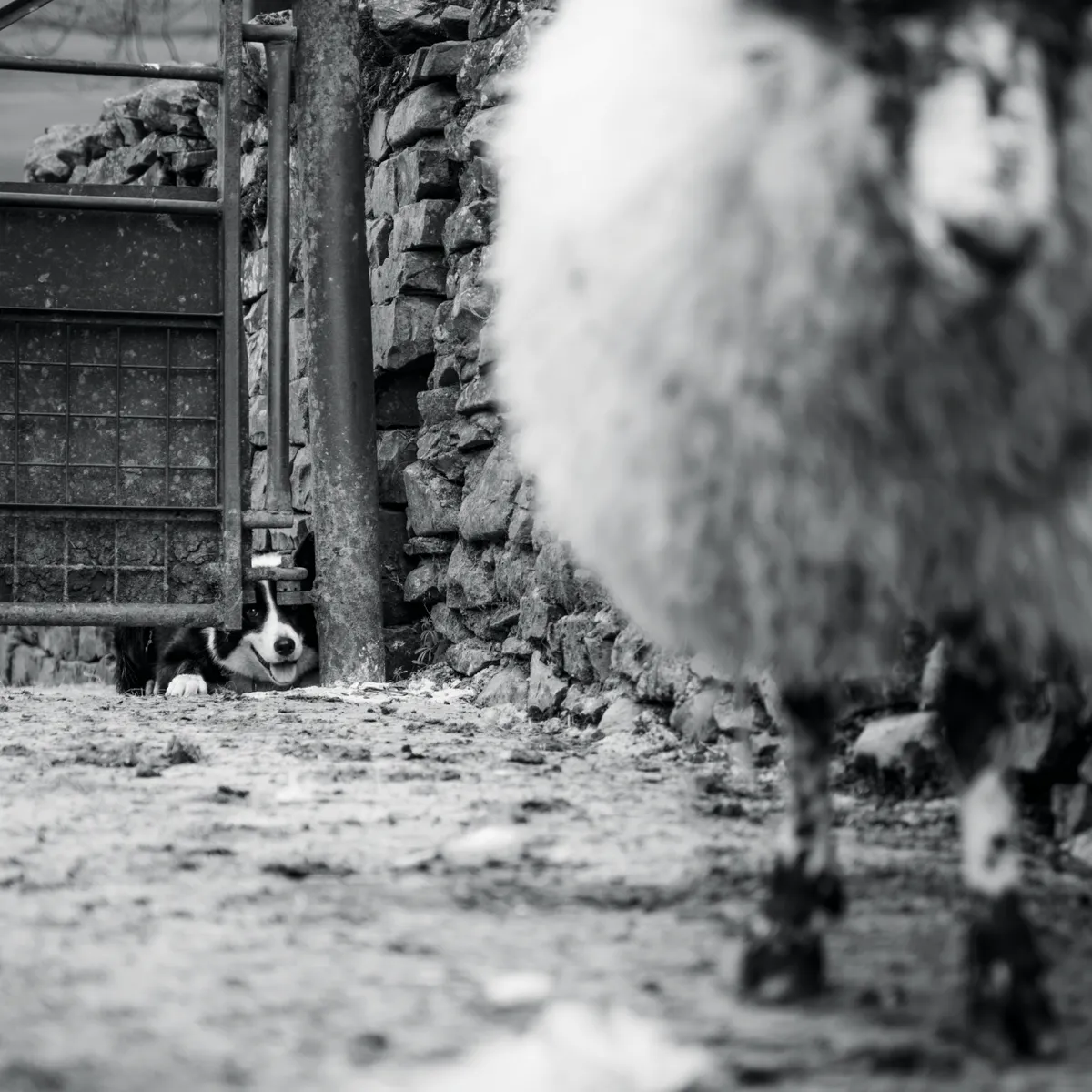
Amy Bateman is a photographer who lives with her family at Croft Foot Farm in Cumbria, where she runs photography tours. Her book depicting farming life in Cumbria, Forty Farms, is out now (Jake Island, £29.90). amybatemanphotography.com







